
Hannah M. Underhill Isaac (September 27, 1833 - May 27, 1904) was an American evangelist.

Hannah M. Underhill Isaac (September 27, 1833 - May 27, 1904) was an American evangelist.
Hannah M. Underhill was born in Chappaqua, New York, on September 27, 1833. Her ancestors for many generations were members of the orthodox Friends Society in which her parents, Charles R. Underhill and Elizabeth Cornell Quinby, were members and elders. [1] [2]
Her education was received principally in the Friends' boarding schools in Dutchess County, New York, and Westtown Township, Pennsylvania. [1]
For four years after leaving school Hannah M. Underhill taught in her native town, and later carried on a private school at home. [1]
Hannah M. Underhill spent several winters with friends and relatives in New York City, where she entered society. During one of these winters, she gained a strong conviction. In the summer of 1861, she renounced the worldly life she had been leading. She was converted, and for some time that life satisfied her. Five years after conversion she received what she believed to be a call to preach the gospel. She was an invalid for three years, and on recovering her health she began to do evangelistic work. [1]
For six years she was connected with Elizabeth Loder in mission work in the village of Cornwall, New York. Loder owned a chapel, and together these women worked to spread their faith. Sailors, boatmen and laborers went to their meetings, and many were converted. [1] When the temperance crusade came, Underhill joined in the work of the Woman's Christian Temperance Union, entering a union in Brooklyn. In 1880 she organized a society in Cornwall, which was one of the most prominent of the local organizations in Orange County, New York. [1]
Hannah M. Underhill married William Isaac, of Cornwall, in March, 1886. [1]
She died on May 27, 1904, and is buried at Quaker Cemetery, Chappaqua.

Emily Howland was a philanthropist and educator. Especially known for her activities and interest in the education of African-Americans, she was also a strong supporter of women's rights and the temperance movement. Howland personally financed the education of many black students and contributed to institutions such as the Tuskegee Institute and Kowaliga Institute in Kowaliga, Alabama where Howland Hall was named for her.

Hannah More was an English religious writer, philanthropist, poet, and playwright in the circle of Johnson, Reynolds and Garrick, who wrote on moral and religious subjects. Born in Bristol, she taught at a school her father founded there and began writing plays. She became involved in the London literary elite and a leading Bluestocking member. Her later plays and poetry became more evangelical. She joined a group opposing the slave trade. In the 1790s she wrote Cheap Repository Tracts on moral, religious and political topics, to distribute to the literate poor. Meanwhile, she broadened her links with schools she and her sister Martha had founded in rural Somerset. These curbed their teaching of the poor, allowing limited reading but no writing. More was noted for her political conservatism, being described as an anti-feminist, a "counter-revolutionary", or a conservative feminist.
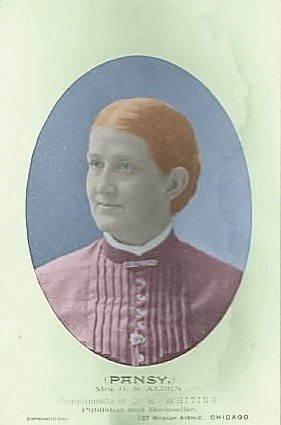
Isabella Macdonald Alden was an American author. Her best known works were: Four Girls at Chautauqua, Chautauqua Girls at Home, Tip Lewis and his Lamp, Three People, Links in Rebecca's Life, Julia Ried, Ruth Erskine's Crosses, The King's Daughter, The Browning Boys, From Different Standpoints, Mrs. Harry Harper's Awakening, The Measure, and Spun from Fact.

Lillian M. N. Stevens (1843–1914) was an American temperance worker and social reformer, born at Dover, Maine. She helped launch the Maine chapter of the Woman's Christian Temperance Union (W.C.T.U.), served as its president, and was elected president of the National W.C.T.U. after the death of Frances Willard. Stevens also served as Editor-in-chief of the W.C.T.U.'s organ, The Union Signal.

Charlotte Elizabeth Tonna was a popular Victorian English writer and novelist who wrote under the pseudonym Charlotte Elizabeth. She was "a woman of strong mind, powerful feeling, and of no inconsiderable share of tact." Her work focused on promoting women's rights and evangelical Protestantism, as seen in her book Protection; or, The Candle and the Dog, in which the following characteristic quote appears: "Our greatest blessings come to us by prayer, and the studying of God's word." As Isabella A. Owen remarked in 1901, "She was above all else an anti-Romanist, a most protesting Protestant." Harriet Beecher Stowe wrote of her memoir Personal Recollections (1841): "We know of no piece of autobiography in the English language which can compare with this in richness of feeling and description and power of exciting interest."

Sarepta Myrenda Irish Henry was an American evangelist, temperance reformer, poet and author. She also wrote under the pen name Dina Linwood.
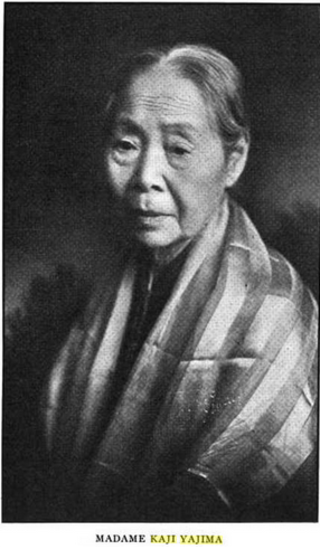
Yajima Kajiko was the founder of the Women's Reform Society and president of Japan's Woman's Christian Temperance Union. An educator, pacifist, and Christian activist, she vigorously advanced the cause for the education of women in Japan. Her name was usually seen as Kaji Yajima in the American press of her day.
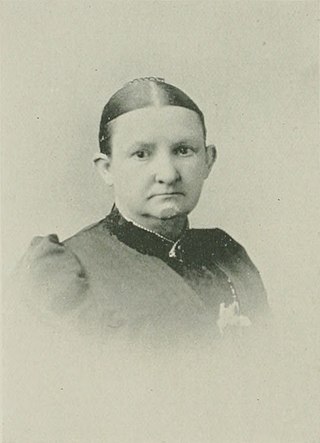
Hannah Johnston Bailey was an American Quaker teacher, activist, and advocate for peace, temperance, and women's suffrage.

Jennie Fowler Willing was a Canadian-born American educator, author, preacher, social reformer, and suffragist. She married a lawyer and Methodist pastor at age 19. In 1873, she and her husband became professors at Illinois Wesleyan University. In addition to teaching, she was a leader in the temperance movement. Willing came to notice when she joined the Illinois Woman's State Temperance Union, serving as its leader for some years. She and Emily Huntington Miller were involved with creating and presiding over the First Woman's National Temperance Convention of 1874 in Cleveland where the National Woman's Christian Temperance Union was formed. She served as the editor of the national organization's journal for a period. In 1895, she created the New York Evangelistic Training School. Willing wrote several books including From Fifteen to Twenty-five: A Book for Young Men and serials for newspapers.

Hannah T. Pratt was an evangelist.

Elizabeth Ward Greenwood was an American social reformer in the temperance movement, and evangelist in the Methodist Episcopal Church.
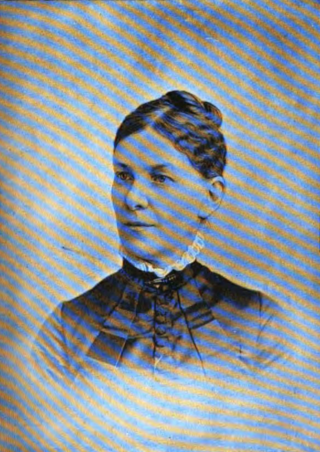
Susan Hammond Barney was an American social activist and evangelist. She was the founder of the Prisoners' Aid Society of Rhode Island, and due to her efforts, police matrons were secured for the station houses of large cities. She worked with the Woman's Foreign Missionary Society, and was the first president of the Rhode Island Woman's Christian Temperance Union (WCTU). She was instrumental in making prohibition a constitutional enactment in Rhode Island in 1886. Barney is best remembered as the WCTU's National Superintendent of Prison, Jail, Police, and Almshouse Visitation. Her wide sympathies and ministries earned her the title of "The Prisoner's Friend." It was Barney's desire to become a foreign Christian missionary, but, due to ill-health, she was not able to pursue this career; nonetheless, her first public speaking was done in the interest of the Woman's Foreign Missionary Society of the Methodist Episcopal Church.
Margaret E. Winslow (1836-1936) was an American activist, newspaper editor, and author of several temperance books. She served at two separate times, and during the longest period of any editor-in-chief of Our Union, the national organ of the Woman's Christian Temperance Union (WCTU). It was a burst of inspiration from Winslow, relative to its simplicity and purity, which at the National WCTU Convention in Chicago determined the union to wear the white ribbon as a badge rather than the red, white, and blue which was strongly urged by many.
Alice Sudduth Byerly was an American temperance philanthropist. For several years, she was National Superintendent of the Flower Mission Department of the Woman's Christian Temperance Union (WCTU).
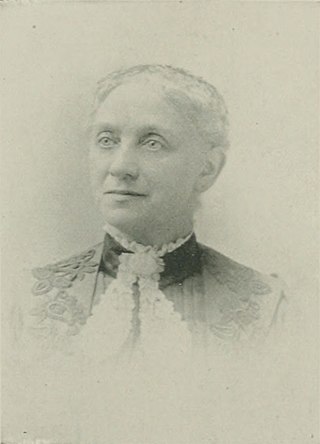
Mary Jane Aldrich was an American temperance reformer, lecturer, and essayist of the long nineteenth century. She served as vice-president of the National Woman's Christian Temperance Union (WCTU) and president of the Iowa union. At the time of the division in the ranks of the WCTU, Aldrich, with the Iowa union, adhered to the non-partisan temperance work, and became evangelistic secretary of the Non-Partisan National Woman's Christian Temperance Union. As a temperance worker, she was characterized as sanguine and practical. As a speaker, she was bright, forceful, entertaining and logical. She was the author of "Church and Sunday School Temperance Work" (1898).

Esther J. Trimble Lippincott was an American educator, reformer, and non-fiction author. She served as professor of elocution and literature at Swarthmore College, and West Chester State Normal School. The Quaker naturalist, illustrator, and social reformer, Graceanna Lewis, was Lippincott's cousin.

Sarah Maria Clinton Perkins was an American Universalist minister, social reformer, lecturer, editor, and author of Sunday school books. Early in life, she was engaged in educational work. She was involved in the temperance movement and advocated for women's suffrage. She was an early abolitionist and an early Prohibitionist. Perkins was a highly educated woman, a writer and speaker of rare force. Moving to Cleveland, Ohio, after being widowed in 1880, she was for many years actively connected as National Lecturer with the Woman's Christian Temperance Union (WCTU). She filled various other positions in reform associations including, President of Cleveland's Equal Franchise Club, and president of the Literary Guild of Cleveland.
Elizabeth Putnam Gordon was an American temperance advocate, author, and editor. She held positions of authority with the Massachusetts, National, and World's Woman's Christian Temperance Union (W.C.T.U.) organizations. Gordon was the author of Women torch-bearers; the story of the Woman's Christian Temperance Union (1924), a story-history of the W.C.T.U.'s fifty years of activity. It was the first time the entire history of the organization, records, documents and other data were gathered into one volume.
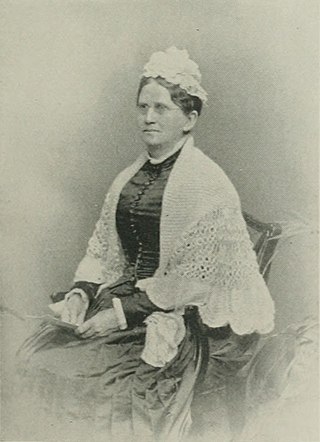
Frances C. Jenkins was an American evangelist, Quaker minister, and social reformer, involved in the temperance and suffrage movements of the day. While in Illinois, she served as a vice-president of the state's Woman's Christian Temperance Union (W.C.T.U.). She came to Kansas City, Missouri about 1880 and was active in church and club work there. It was chiefly through her influence that the Friends' Church at 30th Street and Bales Avenue was organized in that city in 1882. Several times since 1890, Jenkins was pastor of this church. In Kansas City, she was the first president of the Federation of Women's Clubs and was also president of the first equal suffrage organization in that town.
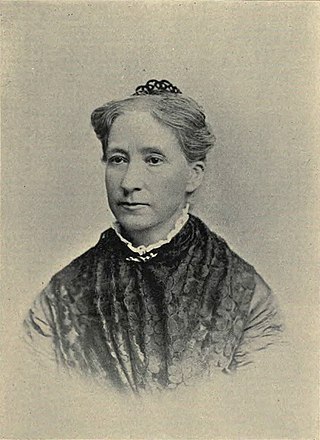
Mary J. Farnham was a British-born American missionary and temperance advocate. For 20 years, she served as president of the Woman's Christian Temperance Union (W.C.T.U.) of China. As a missionary to Shanghai, Farnham conducted a free day school for poor girls and a large boarding school.
{{cite book}}: CS1 maint: multiple names: authors list (link)